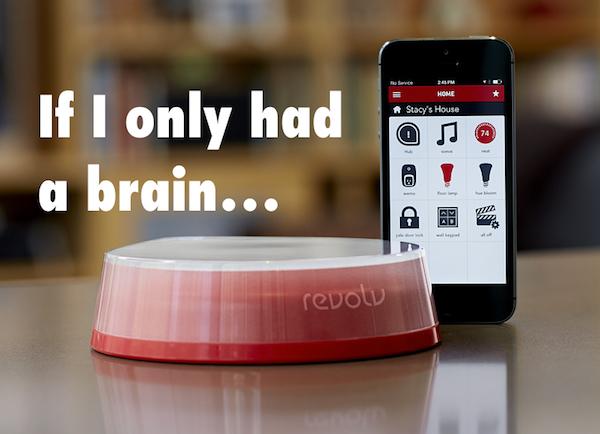The Connected Home is Dead. Long Live the Smart Home!

Since the Neato XV-21 is capable of doing its job, once programmed, without outside assistance from a human or a distant cloud-based server, I consider it to be a “smart device”. It’s not in the genius category by any means, but it’s still smart—at least smart enough to automatically do the task it was designed to do.
Now let’s consider the soon-to-be-dead Revolv Hub. You know, the one that promised customers a “Revolv Lifetime Subscription” as part of the $300 early adopters shelled out in 2014 to be on the cutting edge of the smart home revolution. The one that parent company Nest announced it will be shit-canning on May 15th because “we can’t allocate resources to Revolv anymore and we have to shut down the service.” At least the founders of Revolv—or, more likely, the PR people who crafted the statement—feel their customers’ pain. “Thank you for your support and believing in us. We’re sad for the end of Revolv, but this isn’t the end of the connected home. This is the beginning.”
Much well-deserved vitriol has been poured on Nest over this “f* you very much” way of shutting down Revolv. One of the better pieces is a post by Arlo Gilbert titled "The time that Tony Fadell sold me a container of hummus." I like it because the Revolv Hub does look a lot like a tub of hummus. (I’m going to put the Revolv Hub I have in the fridge and see if anyone notices.) I also like the piece because it’s written from the perspective of someone who actually owned a Revolv Hub, built a smart home around it, and is now pondering the first-person effects the shutdown will have:
On May 15th, my house will stop working. My landscape lighting will stop turning on and off, my security lights will stop reacting to motion, and my home made vacation burglar deterrent will stop working…
Wired’s take on the situation ("Nest’s Hub Shutdown Proves You’re Crazy to Buy Into the Internet of Things") was equally as biting from a general consumer standpoint:
Today Nest is committed to keeping its products working, but tomorrow it might decide the money it spends on the cloud service that supports its Protect line would be better spend elsewhere. Suddenly your $100 smoke detectors would be no more useful than the perfectly good $10 ones you threw out.
As someone whose internet access is not 100% reliable, I’m a bit more irritated by Silicon Valley’s Pollyannish belief in a world with persistent, ubiquitous access to the internet. Not everyone has an unlimited data plan with Gigabit internet speeds. Living your digital life exclusively in “the cloud” sounds like a dream. And, as a matter of fact, the real world is not quite so wonderful. According to an FCC report earlier this year:
- Approximately 34 million Americans still lack access to fixed broadband at the FCC’s benchmark speed of 25 Mbps for downloads, 3 Mbps for uploads
- A persistent urban-rural digital divide has left 39 percent of the rural population without access to fixed broadband
- 10 percent lack access nationwide
- 41 percent of Tribal Lands residents lack access
- Internationally,the U.S. Continues to lag behind a number of other developed nations, ranking 16th out of 34 countries
Being one of those 34 million Americans lacking access to fixed broadband, I’m actually encouraged by Nest’s upraised middle finger to those soon-to-be unplugged Revolv Hub owners. It sucks for them. But if more consumers start questioning the need for so-called “Internet of Things” devices to always communicate via the internet, more companies will realize that its in the best interests of their customers to design their products with more of the smarts on-board. Of course, that makes it more difficult to justify charging monthly subscription fees. They’ll just have to rewrite their business plans.
As smart as they seem, connected-only devices are dumb. Requiring internet access for information like weather forecasts and for communication with electronic locks or lights in your smart home is a given. But it’s totally stupid to require internet connectivity for daily operation—and, in some cases, especially for apps on smartphones to communicate with the so-called smart hub. Let’s hope this is the beginning of the end for the connected home. I know it hasn’t been around for very many years, but it’s already time for a major renovation
“Think globally, act locally” is a great slogan for all kinds of activities in life. It’s not so good for smart home devices. They should think as well as act locally.













































